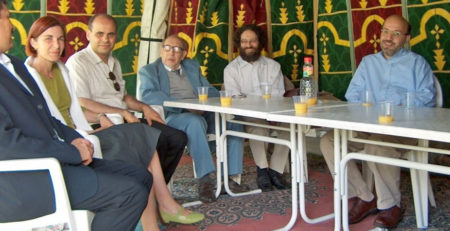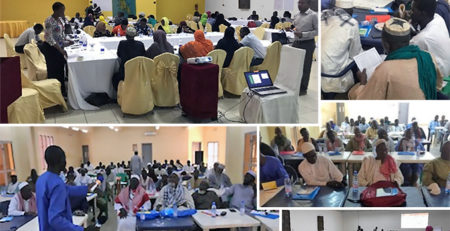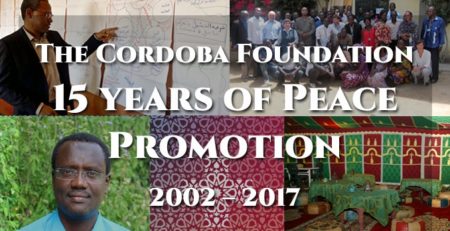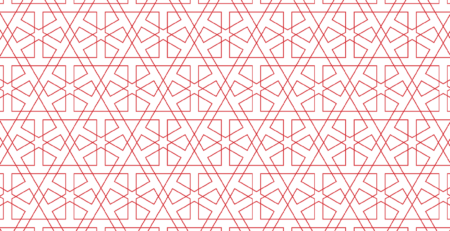The Cordoba Update 17.11-01.12.2015

| In line with the programmes and projects funded by partners of the Cordoba Foundation of Geneva, updates and information are included under the following geographical regions and themes: | |
North Africa:
|
Sahel region:
|
Middle East:
|
Cross-regional:
|
ISLAMIST-SECULAR RELATIONS /
RELATIONS ENTRE SÉCULIERS ET ISLAMISTES
Morocco, 29 November 2015: Factions unite in Protest against Benkirane’s Government
According to press reports, over 10,000 Moroccans protested in Casablanca on Sunday morning, demanding that the coalition government – under current Prime Minister, Abdelilah Benkirane – commit to improving socioeconomic conditions in the country. The demonstration was organised by four main trade unions, but also comprised members of Al Adl Wa Alihssane, the 20 February Movement, a number of political and rights groups, medical students and around 3,000 trainee teachers – who have been on strike for over a month. These varied groups united in levelling criticism at Benkirane’s government for “unilateral” legal, economic and social policies. According to Melodie Moukhariq, Secretary General of the Moroccan Labour Union, the protest was “an expression of the popular classes’ rejection of Benkirane’s government’s policies.”
According to Ahmed Adoua of le 360, these social grievances are partly the result of the stalled dialogues between workers’ syndicates and the government, but the large protests in Morocco’s economic capital also suggest growing frustration among the general population. The discontent may be related to the government’s recent implementation of an austerity programme, following IMF recommendations in 2011. The pressures of economic austerity on ordinary people in Morocco could eventually affect Benkirane’s popular base of support.
Links for more information:
http://www.hespress.com/politique/285913.html
http://www.hespress.com/politique/285688.html
http://www.le360.ma/fr/politique/syndicats-les-detracteurs-de-benkirane-descendent-dans-la-rue
http://www.le360.ma/fr/politique/diapo-casablanca-imposante-marche-pour-protester
http://telquel.ma/2015/11/29/benkirane-viseur-syndicats-casablanca
http://24.ae/article/203528/
TRANSITION AND POLITICAL PARTICIPATION /
TRANSITION ET PARTICIPATION POLITIQUE
Libya, 30.11.2015: Algiers renews its Engagement in the Libyan Dialogue Process
The first two weeks of Martin Kobler’s leadership of UNSMIL have been a period of intense diplomatic activity. Kobler has already indicated that he will start his mediation efforts where his predecessor left off, but made it clear that “Leon is Leon and Kobler is Kobler” – indicating he would be neutral and impartial. He has already met with parties in the conflict, in Tobruk and Tripoli, and travelled to Cairo to meet with Fayez al-Sarraj, candidate for premiership of the proposed national government and Mohamed Shukri, the Egyptian foreign minister. On 1 December 2015, Kobler arrived in Algiers to attend the 7th meeting of the Neighbours of Libya Group, which includes Tunisia, Niger, Chad, Sudan, and Egypt. Representatives from Italy, the EU and the African Union would attend the meeting as well. The renewed Algerian engagement in the Libyan political dialogue process comes against the backdrop of further rapprochement between Tripoli and Tobruk. The Algerian decision also comes after statements from the French foreign minister, which some understood as calls for intervention in Libya, in the wake of the bloody Paris attacks. Members from the two rival legislative houses in Libya met last week in Tunisia and have reportedly agreed to sign the political agreement if Kobler’s amendments are adopted. The Tripoli-based GNC is reportedly holding a session on 3 December to discuss the new developments. The Foundation understands that UNSMIL’s new military affairs staff made contact with the Tripoli government earlier this week, in order to move talks forward on the security arrangements contained in the political agreement. Tripoli has been responsive, but needs assurance that the new staff would depart from – what they consider – the biased position of the previous team, under Leon. Qatar’s announcement last week that it had brokered a ceasefire between the tribes fighting in southern Libya is another key development in the country.
Links for more information:
http://www.aps.dz/algerie/32462
http://www.aps.dz/algerie/32027
http://unsmil.unmissions.org/Default.aspx?tabid=3543&ctl=Details&mid=6187&ItemID=2099373
http://www.middleeasteye.net/news/rival-libyan-tribes-sign-peace-deal-qatar-state-media
http://www.aljazeera.com/news/2015/11/libya-tribes-sign-ceasefire-deal
http://unsmil.unmissions.org/Default.aspx?tabid=3543&ctl=Details&mid=6187&ItemID=2099369
http://www.independent.co.uk/news/world/africa/libya-crisis-foreign-intervention-is-part-of-the-problem
Tunisia, 24.11.2015: President Beji Essebsi Weighs in Again to Resolve Nidaa Party’s Crisis
The political crisis within Nidaa Tounes persists, and it seems that the attack in Tunis did not slow the escalation of the crisis with Nidaa Tounes. Indeed, the rivalry between the Hafedh Essebsi group and Mouhcen Merzouk loyalists led to the publication of two separate communiques condemning the Tunis attack. President Beji Caid Essebsi has moved to select a 13-member committee tasked with mediating between the main two crisis-groups within Nidaa, in order to decide on whether to hold a congress meeting on party policies and structure.
Links for more information:
http://kapitalis.com/tunisie/2015/11/25/attentat-de-tunis-nidaa-condamne-en-se-divisant-par-2
http://kapitalis.com/tunisie/2015/11/29/nidaa-tounes-beji-caid-essebsi-a-la-rescousse/
http://www.middleeasteye.net/news/algeria-warns-against-foreign-intervention-north-africa
Egypt, 29.11.2015: Clashes in Cairo & Luxor
Egypt’s security forces dispersed a protest in downtown Cairo on 29 November 2015 by dozens of PhD and Masters degree holders demanding employment in the Ministry of Higher Education after the completion of their doctoral studies. Several arrests were made, including the protest coordinator Mahmoud Abo Zeid. In Luxor, clashes erupted between local residents and security forces on Wednesday 24 November outside a police station where eyewitnesses alleged that a man was tortured to death a few hours after his arrest. However, after two people died in police stations in Luxor and Ismailia, the Ministry of Interior issued a statement on 29 November saying there is a no tolerance policy with regards to individual violations by policemen.
Links for more information:
http://english.ahram.org.eg/NewsContent/1/64/171979/Egypt/Politics-/Egypt-policeman-accused-of-torture
http://thecairopost.youm7.com/news/179067/news/clashes-between-luxor-residents-forces
http://www.egyptindependent.com/news/masters-phd-graduates-protest
http://www.dailynewsegypt.com/2015/11/30/new-police-abuse-cases
Egypt, 30.11.2015: Human Rights violations continue in Egypt
Egypt’s National security forces have taken investigative journalist Ismail Alexandrani into custody in Hurghada, where he was arrested at the airport early Sunday (November 29, 2015). Last week, a teaching assistant at Al-Azhar University, Faculty of Medicine, was suspended and referred to investigation for “inciting protests and insulting the Armed Forces, figures of the state and Al-Azhar.” The Daily News reported that three new cases of alleged police abuse have been reported in Fayoum and Ain Shams. On 26 November, a petition by 16 human rights organizations repeated calls for revoking the protest law introduced in 2013 following the overthrow of former President Mohamed Morsi. The Independent newspaper reported on 20 November that the world’s largest advertising company (WPP, the UK-based multinational communications firm founded by Sir Martin Sorrell) has been accused of “whitewashing” Egypt’s record on human rights after describing how it organized a major economics conference which distracted the global media from reporting “negative” news about the country.
Links for more information:
http://www.egyptindependent.com/news/petition-16-ngos-demands-end-protest-law
http://thecairopost.youm7.com/news/178823/news/al-azhar-teaching-assistant-suspended
http://www.madamasr.com/news/journalist-ismail-alexandrani-detained-hurghada-wife
http://www.independent.co.uk/news/business/news/wpp-worlds-largest-advertising-company-accused-of-whitewashing
Egypt & Israel, 29.11.2015: Egypt’s pope breaks 35-year Jerusalem visit ban for funeral
The Egyptian head of the Coptic Church, Pope Tawadros, made a rare visit to Jerusalem to preside over the funeral on Saturday of a Coptic bishop. This marks the first visit of its kind since 1967. The previous Coptic pope, who opposed the normalization of ties between Egypt and Israel, banned worshippers from traveling to Jerusalem more than three decades ago. Following domestic criticism of the visit, the Coptic Orthodox Church issued a statement saying that the pope did not obtain an Israeli visa, nor did he meet with any Israeli officials. The statement added that the church’s position towards Jerusalem remains unchanged, and that Pope Tawadros opposes normalization with Israel.
Links for more information:
http://www.reuters.com/article/2015/11/28/us-israel-palestinians-coptic
http://www.egyptindependent.com/news/pope-s-jerusalem-visits-still-drawing-criticism
http://www.madamasr.com/news/coptic-church-issues-statement-defending-popes-visit-israel
http://en.aswatmasriya.com/news/
Egypt, 24.11.2015: Sisi’s committee to improve values & morals
At a presidential meeting with a consultative council of experts and scholars, Abdel Fattah al-Sisi agreed to establish a committee to “improve values, conscience and promote work ethics and a sense of belonging,” the presidency said in a statement. The committee is set to work directly under Sisi’s auspices. The committee is the brainchild of psychiatrist Ahmed Okasha who presented the proposal, suggesting methods and projects to develop values through grassroots initiatives that would change behaviors generally.
Links for more information:
http://www.madamasr.com/news/sisi-approves-committee-development-morals-and-values
http://en.aswatmasriya.com/news/view.aspx?id=59628712-8ddd-4526-a097-90eba715c8a5
RELATIONS BETWEEN COMMUNITIES OF DIFFERENT ETHNIC, CULTURAL AND RELIGIOUS AFFILIATION /
RELATIONS ENTRE COMMUNAUTÉS DE DIFFÉRENTES AFFILIATIONS ETHNIQUES ET CULTURELLES
Mali, 28.11.15 : Attaque contre l’ONU à Kidal, Menace contre la Mise en Œuvre de l’Accord de Paix
Deux membres de la force de maintien de la paix au Mali (Minusma) et un civil ont été tués samedi 28 novembre dans une attaque contre un camp de la mission de l’ONU à Kidal, au nord-est du pays. Vingt autres personnes ont été blessées. Revendiquée par le mouvement Ansar ad-dine, cette attaque est interprétée par des observateurs comme la concrétisation des menaces proclamées par le mouvement d’empêcher la mise en œuvre de l’accord pour la paix et la réconciliation au Mali. Le chef du groupe, Iyad Ag Ghali, avait annoncé dans un enregistrement rendu public le mois dernier qu’il rejetait l’accord de paix signé par ses anciens alliés et s’était montré encore plus menaçant. Dans sa menace, Iyad Ag Ghali avait approuvé les attaques passées contre des localités du centre et du sud du Mali, avant d’indiquer que la France restait un ennemi à abattre.
Liens pour plus d’informations:
http://essahraa.net/fr/?q=node/1969
http://www.maliweb.net/la-situation-politique-et-securitaire-au-nord/mali-ansar-dine-revendique-lattaque
http://www.cridem.org/C_Info.php?article=678061
http://maliactu.net/mali-crise-securitaire-au-nord-iyad-ag-ghaly-sen-prend-a-la-minusma-a-kidal/
Mauritanie, 27.11.15: Dialogue Politique: 3 Partis d’Opposition Hostiles au Dialogue dans sa Forme Actuelle
Jeudi 26 novembre dernier, 14 partis politiques d’opposition, regroupés au sein du Forum national pour la démocratie et l’unité (FNDU) se sont réunis afin de se mettre d’accord sur le projet de dialogue proposé par le gouvernement. Les partis n’ont cependant pas réussi à atteindre le consensus. Trois partis, le RFD, l’UNAD et les Avant-gardistes pour le changement, auraient refusé d’entrer dans des concertations directes avec le pouvoir avant d’avoir reçu au préalable une réponse écrite du gouvernement au document que lui avait adressé l’opposition en mai dernier. Les onze autres partis ont accepté de rencontrer le ministre secrétaire général de la présidence de la république et de continuer à coordonner leurs positions à propos du dialogue.
Le chef de l’Etat mauritanien Mohamed Ould Abdel Aziz a réaffirmé son attachement au dialogue politique, dans un message à la nation, à l’occasion du 55ème anniversaire de l’indépendance de la Mauritanie.
Liens pour plus d’informations:
http://www.cridem.org/C_Info.php?article=677934
http://www.noorinfo.com/Mauritanie-Le-forum-echoue-dans-sa-quete-d-une-plate-forme-consensuelle
http://french.cri.cn/621/2015/11/29/781s458867.htm
http://www.kassataya.com/mauritanie/17988
Mauritanie, 28.11.15: Esclavage: le Président Ould Abdel Aziz Nie l’Existence de l’Esclavage en Mauritanie
Dans une interview accordée à TV5 le mercredi 25 novembre 2015, le président mauritanien, Mohamed Ould Abdel Aziz, a nié l’existence de l’esclavage en Mauritanie. Selon lui, il s’agirait d’une histoire montée par des « marchands d’idées » voulant en « faire leur fonds de commerce ». Ce n’est pas la première fois que le président nierait le phénomène. Certains observateurs font remarquer que cette position ignorerait ou minimiserait la souffrance de milliers de Mauritaniens à travers tout le pays, ce qui nuirait au travail pour l’unité nationale. En effet, selon certaines sources, au moins un tiers de Mauritaniens seraient soit esclaves soit issus de familles esclaves.
Amnesty International a déjà par le passé condamné les arrestations et les condamnations de militants anti-esclavagistes.
Bien que déjà interdit officiellement depuis 1981, l’esclavage a vu une nouvelle loi entrer en vigueur pour le contrer en août dernier, le condamnant de « crime contre l’humanité ». Pour les défenseurs des droits humains, il faut encore que ces lois soient pleinement appliquées.
Liens pour plus d’informations:
http://information.tv5monde.com/afrique/mauritanie-entretien-exclusif-avec-mohamed-ould-aziz
http://www.cridem.org/C_Info.php?article=678046
http://www.noorinfo.com/Mauritanie-l-esclavage-n-existe-pas-dans-notre-pays-Video
https://www.amnesty.org/fr/latest/news/2015/08/slavery-in-mauritania
http://www.lapresse.ca/international/afrique/201508/19/01-4893802-en-mauritanie-une-nouvelle-loi
Nigéria, le 28.11.15: Attentat Meurtrier au Nigeria au Cours d’une Procession Chiite
22 personnes ont été tuées dans un attentat-suicide qui a visé, vendredi 27 novembre, une procession chiite près de Kano, dans le nord-est du Nigeria, selon les organisateurs de cette marche. Cette marche de Kano à Zaria, dans l’Etat voisin de Kaduna, était menée pour marquer le 40e jour du deuil chiite de l’Achoura. L’arrivée à Zaria, prévue le 3 décembre, était censée coïncider avec le pèlerinage de Kerbala, en Irak, où se trouve le tombeau de l’imam Hossein, le petit-fils du prophète Mahomet.
Le groupe armé Boko Haram, qui a fait allégeance à l’organisation du soi-disant Etat islamique, a revendiqué l’attentat. Ces organisations considèrent les musulmans chiites comme des hérétiques et Boko Haram a déjà ciblé ces communautés par le passé, notamment en novembre 2014, également lors d’une procession commémorant l’Ashoura.
Au Nigeria, l’insurrection de Boko Haram et sa répression ont fait au moins 17’000 morts et plus de 2,5 millions de déplacés depuis 2009.
Liens pour plus d’informations:
http://www.lemonde.fr/afrique/article/2015/11/27/attentat-meurtrier-au-nigeria-au-cours-d-une-procession-chiite
http://www.romandie.com/news/Nigeria-Boko-Haram-revendique-lattentatsuicide-contre-une-procession-chiite
http://www.lindependant.fr/2015/11/27/nigeria-un-kamikaze-se-fait-exploser-dans-une-procession-chiite
Tchad, le 27.11.15: Des Chefs Religieux Participent à un Atelier sur le Droit Islamique et le Droit International Humanitaire
Le Comité international de la Croix-Rouge (CICR) a organisé le vendredi 27 novembre 2015 à N’Djamena un atelier intitulé «Droit islamique et droit international humanitaire, convergences et principes d’humanité». Une vingtaine de représentants des autorités religieuses, d’associations et d’universités islamiques y ont participé. Considérant l’influence des cercles religieux dans le renforcement du respect des valeurs humanitaires et de la protection des civils, notamment des femmes et des enfants, en temps de guerre, la délégation du CICR au Tchad entretient depuis deux ans un dialogue régulier avec les chefs religieux, avec l’objectif de jeter les fondements d’une plus grande compréhension mutuelle.
Lien pour plus d’informations:
http://www.journaldutchad.com/article.php?aid=8202
RELATIONS BETWEEN MUSLIM COMMUNITIES WITH DIFFERENT RELIGIOUS REFERENCES /
RELATIONS ENTRE LES COMMUNAUTÉS MUSULMANES DE DIFFÉRENTES AFFILIATIONS RELIGIEUSES
Arabie saoudite, 30.11.15 : Entrée en Campagne Electorale des Femmes Saoudiennes
Le 29 novembre dernier a marqué la première entrée en campagne électorale de candidates saoudiennes aux élections municipales. Cette campagne précède de 12 jours les élections qui se tiendront le 12 décembre prochain. 700 femmes sont inscrites sur un total de 9000 candidats. Pour les hommes, il s’agira de la troisième fois qu’ils se rendront aux urnes, les deux premières élections municipales s’étant déroulées en 2005 et 2011.
Le 25 septembre 2011, le roi Abdullah avait annoncé l’octroi du droit de vote et d’éligibilité aux femmes saoudiennes au niveau municipal. En 2013, il nomma pour la première fois des femmes à l’Assemblée consultative de la Choura.
Pour certains, cela représente une grande avancée pour le droit des femmes et pour la démocratie. Pour d’autres, cette annonce serait un moyen pour le gouvernement de présenter l’Arabie saoudite sous un angle positif, notamment en ce qui concerne le droit des femmes à la participation politique. Les femmes saoudiennes sont en effet dépendantes de leurs maris (ou d’un homme de leur famille) dans de nombreux aspects de leur vie (nécessité d’une autorisation pour travailler, se marier, voyager) et sont soumises à des règles strictes et de lourdes restrictions dans ce royaume ultraconservateur (notamment la nécessité d’être accompagnées par un homme lors de leurs déplacements, n’ayant pas le droit de conduire). Les candidates à ces élections doivent ainsi faire face à de nombreux obstacles, notamment l’interdiction de parler devant une audience masculine (nécessité d’user d’un porte-parole masculin) ou de faire usage de leurs photos durant la campagne, ce dernier obstacle s’appliquant également aux hommes.
Cette entrée en politique ne s’est donc pas faite sans bruit. Les femmes se sont en effet plaintes de ces obstacles à leur participation politique. En 2011, Stéphane Lacroix, spécialiste de l’Arabie saoudite et professeur à Sciences Po Paris, avait qualifié cette ouverture politique aux femmes de “réforme sociétale” menée par le roi, une réforme qui lui permettait de laisser de côté toute réforme politique, celle-ci pouvant mener à un partage plus équitable du pouvoir.
Liens pour plus d’informations :
http://www.lemondedesreligions.fr/actualite/le-roi-abdallah-accorde-le-droit-de-vote-aux-femmes
http://blink.htcsense.com/web/articleweb.aspx?regionid=1&articleid=52899014
http://www.lemonde.fr/proche-orient/article/2015/11/29/arabie-saoudite-premiere-campagne-electorale-ouverte-aux-femmes
http://www.lematin.ch/monde/saoudiennes-premiere-fois-candidates/story/19020384
http://www.rtl.be/info/monde/international/en-arabie-saoudite-les-femmes-entrent-enfin-sur-la-scene-politique
VIOLENT EXTREMISM AND THE WAR ON TERROR /
EXTRÉMISME VIOLENT ET LA GUERRE CONTRE LA TERREUR
Tunisia, 24.11.2015: Bloody Attack on Presidential Guard Prompts Stringent Security Measures
The bloody attack in Tunis on 24 November, which killed a dozen presidential guards, prompted a series of new security measures from the government. The Tunisian government raised the security alert to the highest (third) level, including an 8-hour curfew and the closure of the common border with Libya for a fortnight. Rafik Chelli, secretary of state in charge of security, blamed the chaos in Libya for the attacks on Tunisian soil since the beginning of this year: in Bardo, Sousse, and now Tunis. The government has announced that it will recruit 3,000 new security personnel in 2016, and re-activate a special fund for counter-terrorism. Over 1,300 websites and blogs allegedly involved in terrorist propaganda were shut down last week. The new security measures also include facilitation for speeding up the legal processing of the around 1,200 court cases. Abdelkader Messahel, Algeria’s Maghreb and African affairs minister, met with Tunisian PM Habib Sid last week, while Ramtane Lamamra, Algerian foreign minister, warned against calls for intervention in North Africa. A British website, quoting a Tunisian source, said that Algiers reportedly warned Tunisia against Emirati interference in Tunisia.
Links for more information:
http://kapitalis.com/tunisie/2015/11/25/le-conseil-de-securite-decide-un-train-de-mesure-contre-le-terrorisme/
http://www.marsad.ly/en/tunisia-closes-border-with-libya/
http://www.reuters.com/article/2015/11/27/us-tunisia-security
http://www.middleeasteye.net/news/uae-threaten-destabilise-tunisia-not-acting-abu-dhabis-interests
Irak-Syrie, 01.12.15 : L’Escalade de la Guerre et l’Islam en Débat
La récente vague d’attentats commis par le prétendu Etat Islamique en Egypte, au Liban, en France et en Tunisie, a fortement ravivé le débat médiatique autour de la nature de ce groupe. Différents types d’explications, des plus structurelles aux plus conjoncturelles sont développées dans les médias du monde entier. L’action du groupe est en effet interprétée à la fois à travers le prisme d’une opposition anticoloniale et anti-impérialiste mais également au vue de mouvements révolutionnaires et d’une action terroriste répondant à une certaine conjoncture plutôt qu’à une idéologie ancrée au fil des générations. Ainsi, Olivier Roy dans son article Le Djihadisme une révolte générationnelle et nihiliste, qualifie l’action du soi-disant Etat islamique comme un produit d’une « islamisation de la radicalité » plutôt que d’une « radicalisation de l’islam ». Pour ce dernier les djihadistes de ce prétendu Etat Islamique seraient donc opportunistes, versatiles et l’islam serait un vecteur parmi d’autres leur permettant de mener à bien leur action révolutionnaire violente. La sociologue Amel Boubeker va dans le même sens et parle de « terrorisme opportuniste » suite aux attentats de Paris le 13 novembre dernier. Selon elle en effet, le projet du prétendu Etat Islamique est « déconnecté », il serait en effet « davantage lié au vécu des meurtriers qu’à une image détestée de la France comme nation ouverte, plurielle ».
Certains médias postulent que l’attention accordée au débat sur le lien qu’entretient le groupe armé violent avec l’islam tend à évacuer le débat crucial qui se pencherait lui sur les conséquences réelles des politiques extérieures des puissances occidentales menées depuis plus d’une décennie dans la région du Moyen-Orient. Selon Middle East Eye en effet, « l’invasion américaine et les interventions au Moyen-Orient ont créé les conditions du fleurissement de ISIS » et selon l’auteur, blâmer l’islam faciliterait la justification de nouvelles entrées en guerre.
Liens pour plus d’informations :
http://www.theatlantic.com/magazine/archive/2015/03/what-isis-really-wants
http://www.lemonde.fr/idees/article/2015/11/24/le-djihadisme-une-revolte-generationnelle-et-nihiliste
http://www.middleeasteye.net/columns/blaming-islam-isis-convenient-lie-prepare-us-more-war
http://www.academia.edu/19080422/Entretien_sur_les_attaques_terroristes
Egypt, 28.11.2015: ISIS claims responsibility for two attacks in Egypt
Sinai State, the Islamic State (ISIS or ISIL) affiliated militant group in Egypt, claimed responsibility for killing four policemen in Giza on Saturday, 28 November 2015. Ansar Beit Al-Maqdis, who swore allegiance to the ISIS group in 2014, claimed responsibility for the attacks that killed seven people including judicial officials and security personnel in North Sinai’s city of Al-Arish on 24 Nov. 2015.
Links for more information:
http://www.reuters.com/article/2015/11/28/us-egypt-gunmen
http://www.madamasr.com/news/four-policemen-killed-drive-shooting-near-saqqara
http://english.ahram.org.eg/NewsContent/1/64/171750/Egypt/Politics-/North-Sinai-judges-assasination
The views and perspectives contained in the Weekly Update are from individual contributors and external sources, and do not necessarily reflect the opinions or position of the Cordoba Foundation of Geneva. The links are neither intended as an endorsement of particular publications nor the only source for the updates, but to connect to information in the public domain, for those interested in background or further details.












